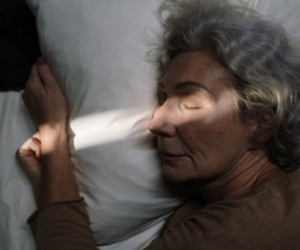Sleep plays a vital role in maintaining overall health, yet millions struggle with sleep deprivation, often unaware of its profound effects on the immune system. Scientific research consistently shows that poor sleep weakens the immune system, leaving us more vulnerable to infections and slower to recover from illness. In this article, we will explore the science behind how sleep affects immunity, including evidence from double-blind, placebo-controlled studies. We’ll also provide actionable steps to improve your sleep quality and, by extension, your immune health.
HOW DOES POOR SLEEP IMPACT THE IMMUNE SYSTEM?
IMMUNE RESPONSE SUPPRESSION
A healthy immune system relies on the production of cytokines—proteins that help fight off infections, inflammation, and stress. However, during periods of sleep deprivation, the body produces fewer protective cytokines. In one pivotal double-blind study published in *The Journal of Experimental Medicine*, researchers found that individuals subjected to sleep deprivation produced significantly fewer cytokines and had a lower immune response when exposed to viruses . The study highlighted how inadequate sleep disrupts the body’s natural defenses, making one more susceptible to illnesses like the common cold.
INFLAMMATION INCREASES
Another study, conducted by *The American Academy of Sleep Medicine* and based on a double-blind placebo trial, demonstrated that individuals with fragmented sleep patterns showed elevated levels of C-reactive protein (CRP), a marker of inflammation associated with chronic diseases . When sleep quality is poor, the body is in a constant state of stress, promoting inflammation, which, over time, can contribute to autoimmune disorders and other health problems.
WHY DOES SPEEP DEPRIVATION AFFECT IMMUNITY?
The body undergoes essential repair processes during sleep, including tissue repair and the production of cytokines, which are vital for coordinating immune responses. When we do not get enough sleep, the regulation of immune cells such as T-cells and natural killer cells (which destroy infected cells) becomes impaired. Sleep also impacts hormonal balance, especially cortisol, the stress hormone. Elevated cortisol levels from poor sleep can reduce immune function over time, further weakening the body’s defenses.
Moreover, during deep sleep, the brain cleanses itself of toxic byproducts accumulated during the day. This process, known as glymphatic clearance, supports overall cognitive function and indirectly enhances immune resilience by preventing neuroinflammation. Disrupted sleep shortens these essential recovery periods, creating a chronic state of stress and immune vulnerability.
5 EFFECTIVE STRATEGIES TO IMPROVE SLEEP QUALITY
Given the strong connection between sleep and immunity, improving sleep habits can help bolster your immune system. Here are five science-backed strategies to enhance your sleep:
#1 CREATE A CONSISTENT SLEEP SCHEDULE
Your body’s internal clock (circadian rhythm) regulates sleep-wake cycles. Going to bed and waking up at the same time every day, even on weekends, helps stabilize this rhythm and improves overall sleep quality. Consistency cues your body when to release sleep-inducing hormones like melatonin.
#2 CREATE A SLEEP-CONDUCIVE ENVIRONMENT
Make your bedroom a sanctuary for sleep. This includes keeping it cool (between 60-67°F), dark, and quiet. Use blackout curtains and limit noise exposure. Avoid using screens (phones, tablets) an hour before bed, as blue light disrupts melatonin production, delaying sleep onset.
#3 LIMIT CAFFEINE & ALCOHOL INTAKE
Caffeine is a stimulant that can remain in your system for hours, reducing your ability to fall asleep. Aim to avoid caffeine at least 6 hours before bed. Alcohol, while seemingly relaxing, can disrupt REM sleep, which is essential for emotional and immune health. Reducing or eliminating late-night consumption of both can significantly improve sleep quality.
#4 INCORPORATE RELAXATION TECHNIQUES
Practices such as deep breathing, meditation, or progressive muscle relaxation can lower stress levels and help calm the mind before sleep. By reducing cortisol (the stress hormone), these techniques encourage deeper, more restorative sleep. Yoga Nidra, in particular, is a guided form of relaxation that has been shown to promote restful sleep and overall well-being.
#5 GET EXPOSURE TO NATURAL LIGHT & STAYIN THE DARK AT NIGHT
Spending time in natural light, especially early in the day, helps regulate your circadian rhythm by signalling to your brain when it’s time to be alert and when it’s time to wind down. If you struggle to get natural light, consider using a light therapy lamp in the morning to mimic the effects of sunlight. At night, keep lights dim, cut out the blue light that signals daytime and cut out the interfering electromagnetic frequencies that tell your body it’s still light outside…
Staying in the dark at night is an altogether different story that needs a whole section of itself…
THE ROLE OF ELECTROMAGNETIC FIELDS IN SLEEP DISRUPTION
In today’s digital world, our homes are flooded with electromagnetic fields (EMFs) from Wi-Fi routers, smartphones, and other electronic devices. Emerging research suggests that EMFs may interfere with melatonin production, a hormone crucial for regulating sleep-wake cycles and helping us get a deep cleep. Melatonin is produced by the pineal gland, primarily in response to darkness, and it signals to your body that it’s time to sleep. However, exposure to EMFs at night may suppress this production, leading to sleep difficulties.
A study published in the Journal of Pineal Research investigated the relationship between EMF exposure and melatonin levels. This double-blind, placebo-controlled study found that participants exposed to low-frequency EMFs during sleep exhibited significantly reduced melatonin levels compared to those not exposed . The researchers concluded that chronic nighttime exposure to EMFs, such as from Wi-Fi routers or electronic devices, could impair sleep quality by inhibiting melatonin secretion.
PRACTICAL TIPS
Turn off your Wi-Fi router at night: If possible, disable your router during sleeping hours to reduce EMF exposure in your home. You can automate this process by using a timer switch to turn off the router after a specific time.
Keep electronic devices out of the bedroom: Charge phones, tablets, and laptops in another room, and avoid sleeping with them close to your bed to minimiSe EMF interference.
Invest in EMF shielding: If turning off devices is not feasible, consider EMF shielding technology, such as Faraday cage-like pouches for phones or special blankets, to reduce exposure during sleep. Shungite crystal rock and other devices that are designed to absorb EMFs – these should be places on or near devices, next to he bed and in all rooms of the house.
FOODS & NUTRIENTS THAT REGULATE SLEEP HORMONES
Diet also plays an essential role in regulating sleep, particularly when it comes to hormones like melatonin and serotonin, both of which influence sleep cycles. Certain foods and nutrients can boost your body’s natural production of these sleep-regulating hormones, helping you fall asleep faster and enjoy more restorative sleep.
KEY NUTRIENTS & FOODS FOR BETTER SLEEP
#1 TRYPTOPHAN-RICH FOODS
Tryptophan is an amino acid that helps the body produce serotonin, a precursor to melatonin. Serotonin not only regulates mood but also promotes sleep when converted into melatonin.
Best sources: Turkey, chicken, eggs, nuts, seeds (pumpkin seeds, sunflower seeds), tofu, and lentils, whole grains (brown rice, quinoa, oats), sweet potatoes, and legumes.
#2 MAGNESIUM
Magnesium is known as a natural relaxant and helps regulate GABA (gamma-aminobutyric acid), a neurotransmitter that promotes calmness and sleep. It also supports melatonin production and can reduce insomnia, particularly in older adults.
Best sources: Leafy greens (spinach, kale), nuts (almonds, cashews), seeds (flaxseeds, chia seeds), whole grains, and legumes.
#3 Vitamin B6
Vitamin B6 is essential for the production of both serotonin and melatonin. Studies have shown that insufficient levels of B6 can lead to disturbed sleep patterns.
Best sources: Fish (tuna, salmon), poultry, bananas, chickpeas, potatoes, and fortified cereals.
#4 MELATONIN-RICH FOODS
Some foods naturally contain melatonin, which can help increase circulating levels of this hormone and promote better sleep.
Best sources: Tart cherries, grapes, goji berries, tomatoes, and walnuts.
Conclusion
The research is clear: poor sleep negatively impacts immune function, leaving us more susceptible to infections, increasing inflammation, and even reducing the effectiveness of drugs. By prioritising good sleep hygiene, we can support our immune system’s ability to protect and heal us. Through simple lifestyle changes, like creating a sleep-friendly environment and adopting relaxation techniques, you can not only improve your sleep but also safeguard your health.
Getting enough sleep isn’t just about feeling well-rested—it’s about giving your immune system the best chance to do its job effectively. As the research shows, poor sleep weakens immune defences and can leave you more vulnerable to illness. In addition to improving sleep hygiene through consistent routines and stress management, focusing on EMF reduction and consuming a nutrient-dense diet rich in sleep-promoting foods can significantly enhance sleep quality.





